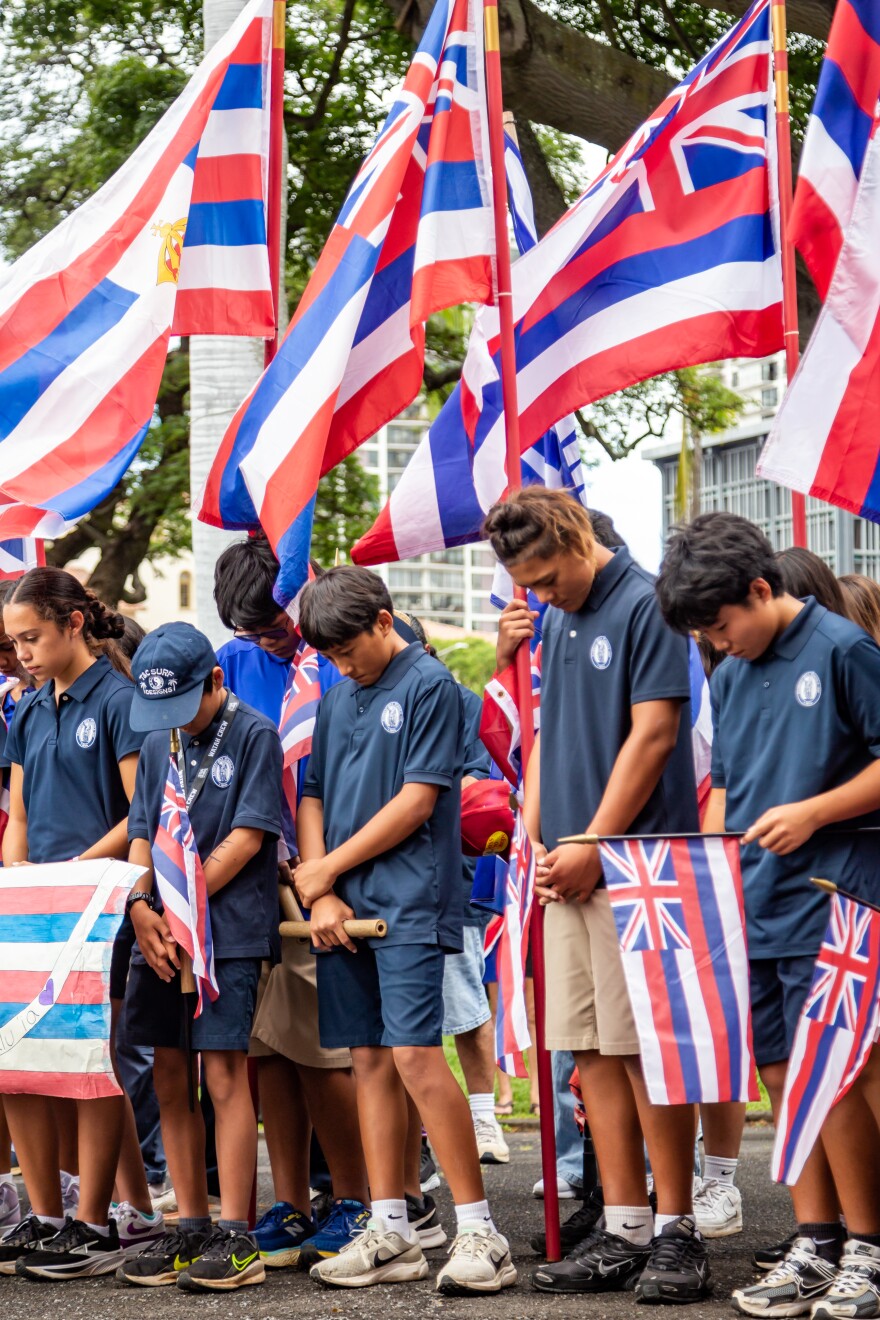A rally organized by Kamehameha Schools at ʻIolani Palace on Tuesday was in response to a lawsuit filed by the Virginia-based group Students for Fair Admissions.
The group is challenging the school’s admission policy, which gives preference to Native Hawaiian students. And this isn't the first time Kamehameha has had to defend its policy.

In 2005, a panel of the 9th U.S. Circuit Court of Appeals struck down the policy, ruling it violated federal civil rights law. Kamehameha sought a rehearing.
The following year, the court upheld the policy. Kamehameha later settled with the family of the student who brought the case when he was denied admission. According to the recent lawsuit, that settlement was $7 million.
The Conversation spoke to Jacob Aki, the president of the Oʻahu Council of the Association of Hawaiian Civic Clubs, who was on the palace grounds for the event.
"It was always a matter of this question of when the next lawsuit was going to come; it was never a matter of if, but really a matter of when. So the school has been preparing for this for a very long time," he said.
Interview highlights
On the lawsuit affecting the broader community
JACOB AKI: This is a very passionate issue that affects more than just graduates. It's really a Hawaiian community issue. So it's really an opportunity, I think, for the school to really rally the broader community and really the broader state, to help folks realize and to educate them about how important the princess's will is, and why it's so important at this time that people come together to really do everything we can to defend the trust.
On the current U.S. political landscape impacting Kamehameha Schools
AKI: I think what we've seen is a change in the legal and the political landscape. When we look at the federal level, we have a conservative Supreme Court, we have a conservative Congress, we have a conservative administration, and we have legal cases that have struck down things like affirmative action for Harvard, the University of North Carolina, and we're seeing SFFA (Students for Fair Admission) and Edward Blum successfully win these legal court cases, which is a lot different than when the last time the school went through this, almost 20 years ago. So the legal landscape has changed. I think what we're going to see is a lot of different arguments be used. One in particular that's really important is recognizing the Native Hawaiians are a recognized political class. We are federally recognized in over 100 federal statutes. So our standing is more than just an ethnic group, but we are a protected political class, and I think that goes a long way in this court case. I think what we're also going to see differently is really looking at the lens in which Pauahi wrote the will. She wrote the will in 1883, 10 years before the illegal overthrow. So the lens in which she wrote her will, the governance and the legal landscape in which she executed her will, was still during the Hawaiian Kingdom, and we've seen many court cases actually defer to kingdom law.

On past lawsuits against Kamehameha Schools
AKI: For many of us who have been following this issue closely, I was a student at the schools when we were going through this the last time. It was always a matter of this question of when the next lawsuit was going to come. It was never a matter of if, but really a matter of when. So the school has been preparing for this for a very long time. The community, many of those who are civically engaged, have been waiting for this. I think you're going to maybe see a lot more engagement from the broader community with tools like social media. I think more and more and more people are going to get educated, and there's going to be a lot of political pressure. There's going to be a lot of pressure coming from the community. Hopefully, that plays into how things play out.
This story aired on The Conversation on Oct. 21, 2025. The Conversation airs weekdays at 11 a.m. Hannah Kaʻiulani Coburn adapted this interview for the web.






